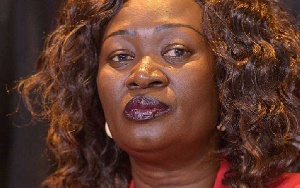A woman will for the first time chair the governing body of a university in South Sudan. Awut Deng Acuil, who is currently the Minister of General Education and Instructions, will chair the council of the University of Bahr El-Ghazal established in 1991, according to a BBC report.
Achuil’s appointment was announced in a presidential decree that was read on the South Sudan Broadcasting Corporation, the national broadcaster, the report added. Acuil, before becoming the General Education and Instructions minister, was also the first woman to serve as the country’s Minister of Foreign Affairs and International Cooperation.
From 2005 to August 2019, she held various positions including Presidential Advisor on Gender and Human Rights, Minister of Labor, Public Service and Human Resource Development, Minister of Humanitarian and Disaster Management and Minister of Gender, Child and Social Welfare, a report said.
Described as a leader of peace efforts, Acuil played key roles in the 1999 Wunlit Peace Conference between the Nuer and Dinka following months of ethnic violence. She also traveled the world from 2000 to 2002 advocating for peaceful solutions to the many problems South Sudan faced. With these efforts, the expert trainer on conflict resolution earned various awards including the 2002 Interaction Humanitarian Award, becoming the second African woman to receive that award after Graca Machel, the wife of Nelson Mandela.
Marrying in her teens to losing her husband in the liberation struggle, Achuil has beaten the odds to become the exceptional woman that she is at the moment. A member of parliament since 2010, she served as Foreign Minister from August 2019 until March 2020 when she gave up her post after a unity government was appointed in February to end the conflict between rival groups in her country.
South Sudan gained its independence eight years ago from neighboring Sudan on July 9, 2011, after a 2005 agreement to end the longest-running civil war that started in 1962. The independence of the Black South Sudanese indigenes indeed ended the civil war with the Arab Sudanese overlords but started another inter-ethnic and inter-factional civil war based on greed and paranoia among the Black Africans.
People fought primarily along ethnic lines between Salva Kiir’s Dinka and Riek Machar’s Nuer tribal groups. These two armed rebel groups have caused the displacement of over four million citizens since independence and caused the death of over a million as they fought each other.
With more than 80 percent currently living below the poverty line, the International Monetary Fund this month granted the country a $52 million emergency disbursement to help it revive its economic fortunes amid the pandemic.
Africa News of Tuesday, 24 November 2020
Source: face2faceafrica.com

















